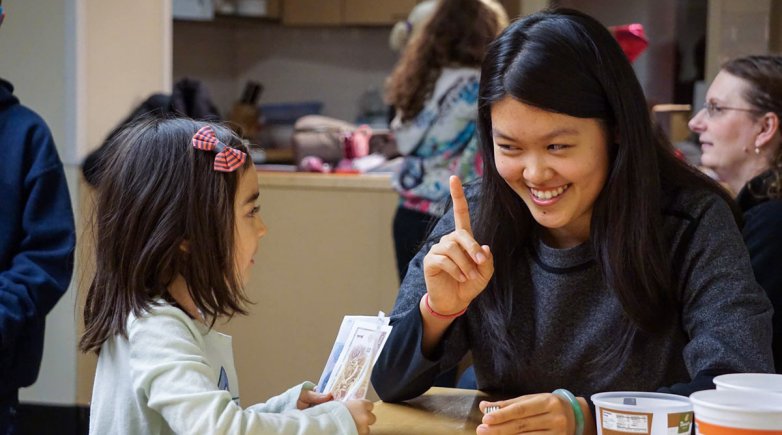Service clubs a force for good in the community
For the past fifty years, Exeter Student Service Organization (ESSO) has helped Exonians translate non sibi from theory into practice.
Jessica Zhao '17, former co-head of the Chinese Culture Cub, interacts with a young friend.
The detritus of busy Exeter students forms the stage setting, as it were, of the second-floor Academy Center offices of Director of Service Learning Liz Reyes and Exeter Student Service Organization Program Assistant Maureen Costello.
Vibrantly colored hula hoops are propped beside giant unopened jugs of lemonade. On a center table lie photos of Exonians sporting green ESSO T-shirts as they celebrate the acquisition of their “dragon,” Academy vernacular for the short red buses that transport students to off-campus activities.
It is a warm and festive space where service-minded students come to hash over ideas, seek advice, and sometimes, say Reyes and Costello, receive a little prodding.



